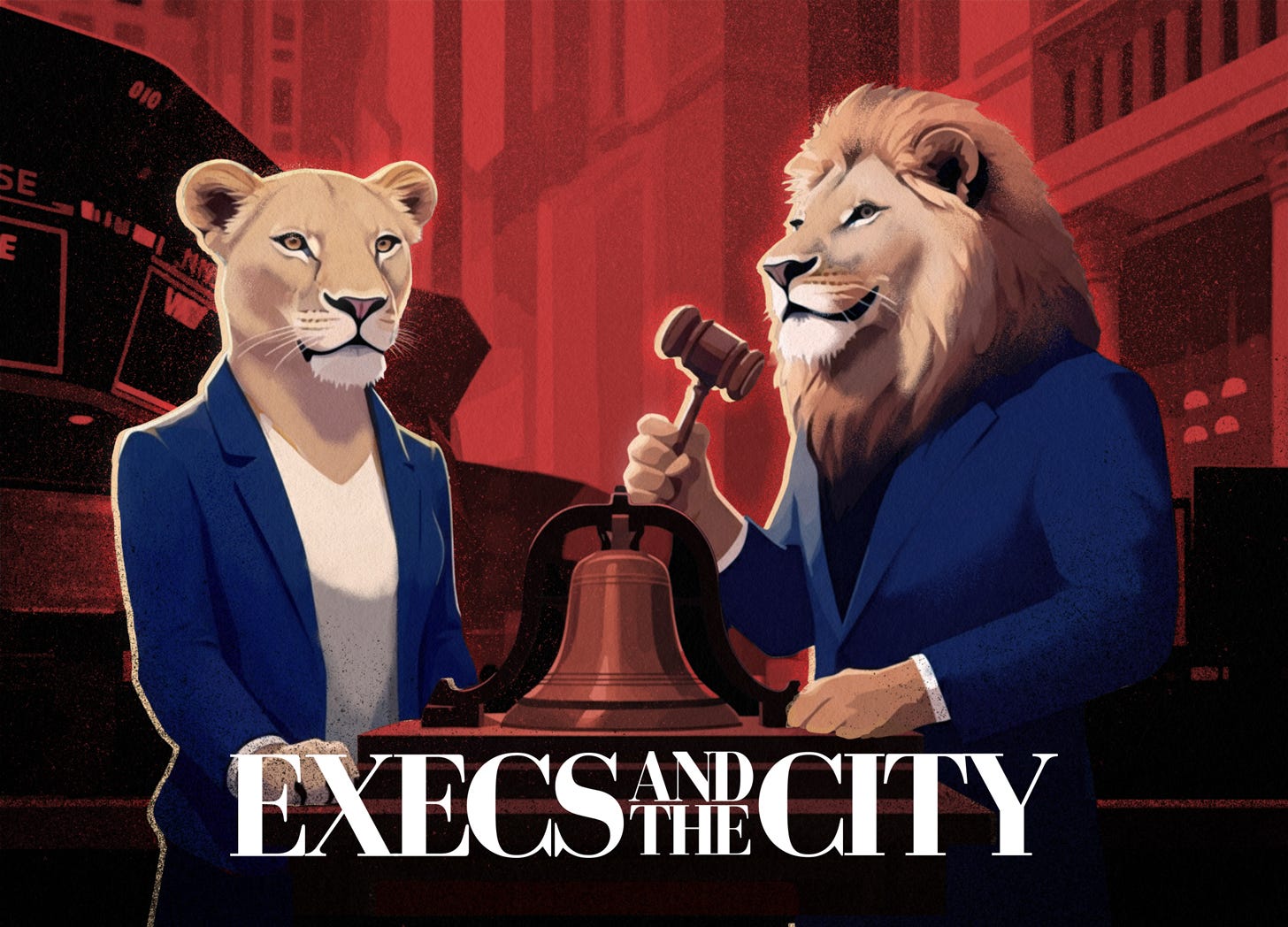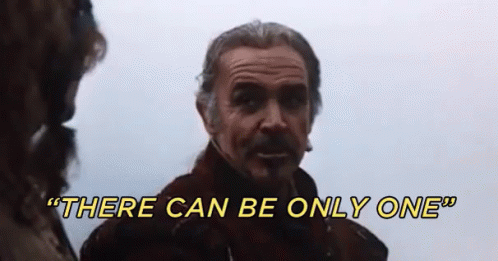Master The Moment When Leverage Becomes Reality
Negotiation isn't where value is created—it's where value is claimed. Learn the six elements of masterful execution to translate your preparation into tangible results and secure your desired terms.
One hundred executives enter final negotiations.
All have elite MBA degrees. All led successful transformations at respected companies. All crushed their interviews and received enthusiastic feedback.
Ninety-nine walk away with offers within a 20% window of public salary benchmarks.
One secures double the compensation.
Is the secret working with me? My ego would like to think so.
The standout executive didn't just prepare differently—they executed differently. While their equally qualified peers focused on last-minute tactics and clung to "industry standards," the winner turned months of groundwork into cold, hard cash.
I've seen this play out hundreds of times.
The pattern never changes.
Most executives waste time memorizing negotiation scripts and rehearsing clever comebacks. They miss the real truth:
Negotiation isn't where value is created—it's where value is claimed.
When you fail in a negotiation, it's not only about what you said in the room near the end. It shows what you did—or didn't do—for months before. The final conversation just reveals the foundation you either built or neglected.
Think about your last big negotiation.
What determined the outcome? Not your words that day.
It was shaped by how you carried yourself in meetings, the language you used, the questions you did or didn’t ask, the trust you built, and the composure you showed over weeks or months.
And even more important: your mindset.
Being open to new possibilities instead of being trapped by what others think you deserve.
The best executives don't sweat negotiations—they've already stacked the deck in their favor long before the conversation starts. And the best deals come from the leaders that understand—no deal is better than a bad deal. So they feel confident walking away if appropriate.
But in the end, execution seals the deal. It's when all your preparation must deliver real results. It's where potential becomes money in your pocket.
Time to master this final piece of the puzzle.
Why This Matters Now
The stakes have never been higher.
Decision timelines have compressed to near nothing. You no longer have hours to make your case—you have mere minutes—often 15 to 30 minute interviews. While your parents' generation had time for multiple meetings and leisurely deliberation, your fate now gets decided in a single Zoom call.
The world has sped up, but your biology hasn't. Your brain still needs the same processing time while everything around you accelerates.
Remote work changed everything. Body language gets flattened on screen. Eye contact becomes impossible in the common laptop and Airpod only setup. The casual hallway conversations where real decisions used to happen have vanished.
Your execution must overcome these barriers or you'll be forever stuck on mute.
Meanwhile, AI is coming for your job. Every day, algorithms get better at the technical skills that used to make you special. What can't be replaced? Your ability to execute in high-stakes human moments that machines can't navigate.
There I go again about why EQ > IQ.
Economic uncertainty has made everyone more risk-averse. The decision-maker across from you isn't just evaluating your proposal—they're evaluating their own risk in backing you. Without flawless execution, you become the risk they avoid.
Your white collar competition for the top 1% of opportunity has quadrupled.
That promotion, that deal, that opportunity you want? Ten years ago, you competed against local talent. Today, you compete against everyone, everywhere. As barriers to entry collapse, your execution becomes your only defensible advantage.
The margin for error has disappeared. One execution mistake can sink your chances. One moment of weakness can undo months of preparation. One emotional reaction can destroy your positioning.
Leaders who master execution don't just survive this environment—they thrive in it. They turn pressure into advantage. They make chaos work for them. They execute with such precision that opportunities open to them while doors close for everyone else.
In this landscape, how you show up in crucial moments doesn't just influence your outcomes—it defines them completely.
Even though it sucks, now is not the time to play victim and cry foul—instead—it’s put up or shut up time.
The Gap Between Preparation and Results
You did everything right. You analyzed the data. You built the perfect strategy. You rehearsed until your pitch was flawless.
Then reality hit.
Your voice shook. You talked too fast. You backed down at the first sign of resistance. You accepted the first offer to avoid tension.
You walked away wondering what the hell just happened.
This gap between preparation and execution kills more careers than lack of skill ever will.
I worked with a brilliant CTO candidate who self-destructed in the final interview after months of flawless work. The moment a board member questioned his technical approach, his face flushed. His voice tightened. He launched into a defensive technical monologue that screamed "insecure."
We picked all this up in our debrief after his traumatic experience.
Game over.
His resume showed he had the right experience. His previous interviews demonstrated his capability. But when pressure hit, his execution failed. The job went to someone with less experience who maintained composure under fire.
Perhaps it was ageism—but I prefer the narrative of the other candidate’s youthful naivety and willingness to boldly run through a corporate brick wall of opposition with enthusiasm. More on the power of enthusiasm later.
This pattern repeats endlessly across industries and roles.
The VP who spent weeks crafting an expansion strategy but fumbled when the CEO asked "what's the downside?" and “what’s the ROI?”
The Director who researched market rates, documented her value, then got cold feet and accepted the first offer instead of asking for more.
The Regional Leader who prepared meticulously for a promotion conversation, then spent the entire meeting talking about processes they managed rather than outcomes they delivered.
What's happening here?
The human brain plays dirty tricks under pressure.
When stakes rise, your body produces cortisol and adrenaline—chemicals designed for physical threats, not strategic conversations. Your breathing gets shallow. Your vision narrows. Your thinking becomes rigid. Your emotional regulation circuits go offline.
Precisely when you need your brain the most, biology works against you. Naturally you default to whatever has worked for you in the past. But you should know better.
What got you here,
won’t get you there.
Knowledge isn't enough. Tactical understanding without emotional readiness is like having the world's best battle plan but sending untrained soldiers to execute it.
Preparation creates potential. Execution determines results.
The gap between what you know and what you can actually deliver under pressure represents the most expensive real estate in your career development.
It's time to bridge that gap.
The Six Elements of Masterful Execution
Let's move from problems to solutions.
I’ve observed six specific elements that separate masterful execution from average performance. These aren't soft skills or nice-to-haves. They're the concrete tools that turn preparation into results.
1. Genuine Gratitude
Most executives enter high-stakes situations focused on what they want. Big mistake.
Start with sincere appreciation instead. Not fake flattery. Real gratitude.
"Thank you for making time for this conversation."
"I appreciate the work you've done to bring this forward."
"I'm grateful for your consideration of my candidacy."
This isn't manipulation—it's smart psychology. Gratitude creates an immediate shift from tension to connection. It triggers reciprocity. When you express genuine appreciation, people instinctively want to give something back.
Additionally, gratitude shifts your focus from what you lack or fear to what you possess and appreciate, effectively disrupting the negative thought patterns that fuel anxiety.
By actively acknowledging the good in your negotiations, you cultivate a sense of contentment and resilience, diminishing the power of worry and uncertainty over your mental state.
A double whammy of psychological jiu-jitsu.
Compare these approaches:
❌
Weak: Walking in focused on your demands.
✅
Strong: "I'm appreciative of the work you've done to get us to this point."
The first approach creates resistance before you've said anything important. The second creates receptivity to everything that follows.
Gratitude doesn't just change them—it changes you. When you genuinely appreciate the other person's position, you make better decisions. You think more clearly. You see opportunities others miss.
This isn't about being nice. It's about being smart.
2. Contagious Enthusiasm
Enthusiasm sells when nothing else will.
I've watched mediocre ideas win over brilliant ones for one reason: the presenter actually seemed excited about what they were proposing.
Your energy level speaks louder than your words. If you seem bored by your own ideas, why should anyone else care?
The trick is genuine enthusiasm, not fake hype. Don't pretend to be a game show host if that's not your style. Find what genuinely excites you about the opportunity and let that energy come through.
The most powerful approach?
Assume positive outcomes.
✅
"I’m grateful for the opportunity to work with you. Before we move forward, I have a few points to discuss, but I expect we'll be working together in the coming weeks—I can't wait..."
When you talk about the future as if it's already happening, you plant a vision in people's minds. If people don't believe a deal is possible, they won't even try to make it work.
Enthusiasm isn't just about energy—it's about possibilities. It creates momentum when negotiations hit inevitable sticking points.
3. Strategic Curiosity
When you feel attacked, you defend. When you feel questioned, you justify. When you feel challenged, you push back.
These natural reactions kill deals faster than anything else.
Replace them with genuine curiosity.
"Can you help me understand?"
"What led you to that conclusion?"
"If you were in my shoes, what would you be asking for?"
These questions transform the dynamic completely. Instead of opposition, you create collaboration. Instead of tension, you create exploration.
A client of mine was negotiating a critical role when the compensation offer came in 40% below target. Instead of expressing disappointment, she asked: "I'm curious about how you arrived at this figure. What factors did you consider?"
This simple question revealed they had benchmarked against the wrong role entirely. The conversation reset, and the final offer landed 20% above her original target.
Curiosity doesn't just give you information—it gives you power. It creates space to think instead of react. It transforms confrontation into conversation.
When in doubt, ask instead of tell.
4. Quiet Confidence
Nothing signals value like comfort with tension.
Most people rush to fill the silence. They talk too much. They make concessions to ease discomfort. They telegraph desperation through nervous energy.
The strongest executives do exactly the opposite.
They speak less, not more. They move deliberately, not frantically. They embrace pauses rather than rushing past them. They state positions directly without over-explaining.
This quiet confidence comes from knowing your value doesn't depend on this single outcome. From trusting that your preparation has set you up for success. From genuine comfort with walking away if the terms don't make sense.
It shows up physically:
Steady eye contact
Relaxed posture
Measured speech rate
Strategic stillness when others get animated
When you project confidence without arrogance, you create gravity that pulls others toward your position.
5. True Collaboration
The weakest negotiators see only their side of the table.
The average ones acknowledge both sides exist.
The strongest put themselves on the same side of the table as the decision maker.
This isn't about compromise—it's about reframing the entire conversation. Instead of "I want" versus "you want," you create "how do we solve this together?"
"How can we structure this so it works for both of us?"
"What options would address your concerns while still meeting my needs?"
"Let's brainstorm a few approaches that could work."
“I appreciate your generous offer—are you open to exploring how we can make this better for both of us?”
Visualize yourself literally on the same side of the table, working together to solve a shared challenge. You're not opponents—you're partners trying to find the best solution.
This approach doesn't mean accepting unfavorable terms. It means changing the conversation from combat to collaboration. It opens possibilities neither side would find alone.
‼️
Let's destroy a dangerous myth: There's no such thing as 'win-win' in employment negotiations.
Every time you hear 'we want this to work for everyone,' remember what's really happening: They're trading you something infinite and constantly depreciating (money eroded by inflation, taxes, and government money-printing) for something irreplaceable and increasingly precious (your limited time on this planet).
With each passing year, your time becomes more valuable—you'll never get it back, never make more of it. Meanwhile, companies generate more revenue each quarter, and the government keeps printing more dollars, diluting the value of every dollar you earn.
They know this. They just hope you don't.
This isn't pessimism—it's strategic clarity.
Understanding the fundamental imbalance in this exchange should give you the most confidence to negotiate from a position of strength.
It empowers you to demand what you're truly worth and to align your work with what you find deeply fulfilling.
After all, if you're trading something as precious as your time, shouldn't you be damn sure you're getting something wonderful in return?
6. Strategic Patience
Speed kills deals.
The person with the most urgency holds the least power. When you rush, you signal desperation. When you push for quick resolution, you surrender leverage.
I suspect this is why the myth about it being easier to find a job when you already have one exists. When you have a job, your financial needs are being met, so you’re not necessarily in a hurry to land another deal. Adversely, when you’re out of work, you’re often quick to stop the financial hemorrhage and take the first decent offer.
Big mistake.
Strategic patience means:
Comfort with extended timelines
Willingness to pause when appropriate
Ability to withstand pressure tactics
Clarity about your walk-away point
Being content with no deal
Remember: haste equals risk.
Decision-makers know this instinctively. When you rush, they sense danger. When you demonstrate patience, you signal confidence in your position.
This doesn't mean unnecessary delay. It means matching your pace to the significance of the decision. Major commitments deserve deliberate consideration.
The most powerful phrase in high-stakes situations? "I need to think about that." This creates space for better decisions while demonstrating your seriousness about the outcome.
These six elements don't work in isolation. They form an integrated system that transforms how you execute in crucial moments.
Combined with the foundation you've built through the other PRECISE© elements, they create execution that doesn't just close deals—it expands what's possible in the first place.
But even with these tools, there are common execution traps waiting to derail you.
Common Execution Failures
Even armed with the right tools, executives stumble in predictable ways. These aren't random mistakes. They're specific traps that catch even the most capable leaders.
The Defensive Spiral
It starts with a single comment that feels like criticism.
Your face flushes. Your breathing changes. Your voice tightens.
You respond to defend yourself. They push back. You justify harder. They resist more.
Within seconds, you're in a defensive spiral that kills your leverage and transforms you from leader to pleader.
I watched a Chief Marketing Officer derail a board presentation over a simple clarifying question. Instead of responding with curiosity, she heard criticism. One defensive response led to another.
Five minutes later, her credibility was shot. An hour later she was fired publicly. Yeah, it kept getting work.
Break the spiral at the first trigger.
When you feel that initial defensive surge, pause. Breathe. Ask a question instead of making a statement. Turn defense into curiosity.
Talking Too Much, Listening Too Little
Nature gave you two ears and one mouth for a reason.
Yet most executives use exactly the opposite ratio in high-stakes situations. They talk endlessly, believing more words create more impact.
Take it from me—the loudest, most talkative leader—full of piss and vinegar and a heaping load of ego and charisma—will only get you so far. I'm learning too.
The truth?
Excessive talking signals insecurity. It dilutes your key points. It eliminates the space others need to buy into your position.
A VP client was failing in final interviews despite perfect qualifications. When we recorded a practice session, the problem became obvious: He spoke 80% of the time, leaving interviewers no room to engage. After fixing this imbalance, he landed his next role with a 40% compensation increase.
✅
Remember: Your goal isn't to overwhelm others with information. It's to create understanding and alignment. That requires listening at least as much as you speak.
Be a well of information, not a firehose.
Accepting the First Offer
Most people leave significant value on the table for one simple reason: They take the first offer.
Not because it's good. Because it avoids tension. Nobody wants to start a long term relationship off with a tense negotiation.
I've watched countless leaders accept initial proposals that both sides knew were just opening positions. The discomfort of pushing back felt worse than the certainty of settling for less.
You need to ask for more. Not because you're greedy. Because the negotiation dance requires it.
When you immediately accept a first offer, you send damaging signals:
The offer was probably too generous
You don't value yourself enough to advocate for better terms
You won’t be able to negotiate well on behalf of the company
The solution isn't complicated: Prepare a thoughtful counter conversation to any initial offer, even when it seems reasonable and competitive. How you ask matters more than what you ask for.
When in doubt, try this simple phrase:
“What's the chance we have
room to improve this offer?"
Forgetting Your Preparation When Emotions Rise
You spent weeks building your strategy. You created backup plans for every scenario. You rehearsed your key points until they were second nature.
Then emotions hit, and you forgot everything.
This amnesia under pressure affects even seasoned executives. The physiological response to stress literally blocks access to your prefrontal cortex—the part of your brain that holds your strategic thinking.
A CEO client blew a major funding pitch despite months of preparation. When asked what happened, he said: "I completely blanked. It was like all my preparation disappeared."
The solution?
Create physical anchors that trigger your preparation. Write three key points on a card you can touch. Establish specific breathing patterns that reconnect you to your strategy. Build muscle memory through realistic practice under stress.
When all else fails, simply pause and ask for more time. When you don’t know what to do—do nothing.
Confusing Activity with Achievement
Some executives mistake motion for progress. They believe busier negotiations signal better outcomes.
They send unnecessary follow-ups. They create artificial deadlines. They propose multiple alternative solutions when patience would yield better results.
All this activity feels productive but actually undermines your position. It signals anxiety rather than confidence. It creates complexity that obscures the path to agreement.
A client was stuck in prolonged negotiations for a critical role. Every day, he sent new ideas and alternatives to the hiring team. He thought he was being helpful. They likely saw desperation. I’ve been guilty of this too.
Once he stopped the flurry of activity and simply held his position with confidence, they came back with a significantly improved offer within 72 hours.
Sometimes the most powerful execution move is no move at all.
These failures don’t have to be fatal if you catch them early. The key is recognizing the warning signs before they derail your execution.
When you avoid these traps while implementing the six execution elements, you create unstoppable momentum toward your desired outcomes.
Your Execution Playbook
Time for action. Here's your practical guide to mastering execution in any high-stakes situation.
Before The Moment
The 5-Minute Centering Ritual
Five minutes before any critical conversation:
Find a private space (even if it's a clean bathroom stall)
Take three deep breaths—inhale for 4 counts, hold for 4, exhale for 4
Plant your feet firmly on the ground
Remind yourself of your three key points
Visualize success—see the moment unfolding exactly as you want (there is no value in optimizing for failure)
This simple ritual activates your parasympathetic nervous system, reducing stress hormones and improving cognitive function precisely when you need it most.
The Leverage Reminder
Write these three questions on a small card:
What unique value do I bring?
What's my walk-away point?
Why am I genuinely excited about this opportunity?
Review this card immediately before entering the room. This reconnects you to your core leverage points when pressure threatens to make you forget them.
During The Moment
The First 90 Seconds
The opening of any high-stakes conversation sets the tone for everything that follows. Nail these elements:
Express genuine gratitude for the opportunity
State your enthusiasm for the potential outcome
Ask one question that demonstrates your strategic thinking
Maintain relaxed, open body language
Speak at 70% of your normal pace
The Response Framework
When faced with unexpected challenges or objections:
Pause (count to 5 silently)
Acknowledge their perspective: "I appreciate that viewpoint"
Ask a clarifying question: "Can you help me understand what's driving that concern?"
Bridge to a collaborative approach: "Let's explore how we might address that while still..."
This framework prevents defensive reactions while maintaining your strategic position.
The Silence Strategy
When you don't know what to say, say nothing.
Most negotiation mistakes happen when you feel pressured to respond immediately. Strategic silence creates space for better decisions while projecting confidence.
After any proposal or counterproposal, remain silent for at least 5 seconds. Let them break the silence first.
Recovery Tactics
Even with perfect preparation, things sometimes go sideways.
Here's how to recover:
The Reset Button
If you find yourself getting defensive or emotional:
Take a deep breath
Redirect with curiosity: "Actually, before I respond, I'd like to understand more about..."
If necessary, call a brief timeout: "This is important enough that I'd like a moment to consider it fully"
The Follow-Up
If the conversation doesn't go as planned, don't try to fix everything in the moment. Instead:
End graciously regardless of outcome
Send a thoughtful follow-up within 24-72 hours
Reframe any misunderstandings
Suggest a specific next step
Provide additional context and value
Keep your response to 3-4 sentences top
✅
Example: “Thank you for the conversation today. It sounds like we need to hammer out a few more points before moving forward. I’ll put together a plan and be available to chat again next Thursday at 2 or Friday at 10. Which do you prefer?”
Some of my biggest client wins came from perfectly executed follow-ups after seemingly failed conversations.
The Three Essential Questions
Before any crucial conversation, ask yourself:
What's the real outcome I want here? (Beyond the obvious)
What does the other person need to feel good about this decision? (And who is influencing them?)
What's my best alternative if this doesn't work out?
These three questions create the strategic clarity that guides flawless execution. When you know exactly what you want, what they need, and your walkaway point, you negotiate from a position of genuine confidence.
This playbook isn't complicated. The power lies in actually using it when it matters most.
Print these techniques.
Practice them before low-stakes conversations. Build the muscle memory that makes them automatic when pressure hits.
The difference between knowing what to do and doing it under pressure defines your career trajectory. Bridge that gap, and outcomes that seem extraordinary to others become predictable for you.
I have a free short video course coming out in the next few weeks to explain this approach in more detail. Stay tuned—I’ll send it to your inbox when we launch it.
Conclusion: Execution Is Where Potential Becomes Reality
The moment of execution reveals what you've really built.
You can have the perfect strategy, flawless credentials, and brilliant ideas. But without masterful execution, they remain just potential—never reality.
Throughout our PRECISE© journey, we've built a comprehensive system for commanding extraordinary outcomes:
Presence establishes your authority before you speak a word.
Emotional Control turns pressure into strategic advantage.
Credibility builds the trust that accelerates everything.
Intentional Positioning controls how you're perceived.
Strategic Influence helps you win before others know they are playing.
Execution converts everything you've built into tangible results.
This isn't just another framework. It's a complete system for commanding your career by architecting influence at every touchpoint with decision-makers who control your trajectory.
The most painful truth in leadership?
Your results reflect your execution capacity more than your technical brilliance.
The good news?
Execution isn't magic. It's a learnable skill built through deliberate practice with specific tools.
The executives who master PRECISE© don't just survive high-pressure moments—they thrive in them. They turn chaos into opportunity. They make pressure their ally rather than their enemy.
They execute with such precision that opportunities open to them while doors close for everyone else.
Is it easy?
No.
But the alternative is surrendering your outcomes to chance—or worse, to those who have mastered what you haven't.
Your next career move, compensation discussion, or leadership opportunity will be determined largely by how you execute when it matters most.
The only question that remains is:
Will you continue focusing on what you know, or will you master what you do when pressure hits?
The choice is yours.
Need help applying this? Upgrade to paid for monthly live sessions with Jacob.
Stay fearless, friends.














